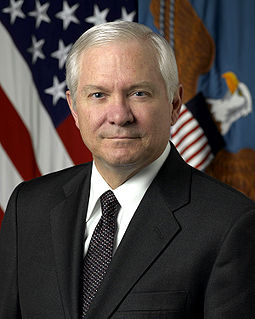IS GATES ON THE RIGHT TRACK OR ENDANGERING OUR MILITARY?
by Kathleen Gotto

(Apr. 18, 2010) – On April 12, Defense Secretary Robert Gates initiated a new policy regulating privately-owned guns on all military installations.
This new policy directs how personal guns can be carried or stored and comes after Major Nidal Hasan gunned down 13 Fort Hood soldiers in November 2009 in cold blood and injured 32 more.
Lt. Gen. Bob Cone managed to find a silver lining in the massacre. “If I could say one positive thing — the potential for a positive thing — that came out of this, it would be our ability to get a better handle on the magnitude of our behavioral health problems here at Fort Hood,” Cone said. “What we’re doing is using this as an opportunity to really cast a very broad net … to reach out to people who might be on the fringe.”
Not everyone is in agreement with Gates’ knee-jerk response of more regulation to prevent any future rampages. Austin Gun Rights Examiner, Howard Nemerov, questions whether more government control equals greater security. Nemerov makes some important points about government’s role in protecting its citizens. He states that the United States Supreme Court consistently rules against the concept that government agencies are responsible when tragedy strikes by ruling that police have no duty to protect, even when the victim has a restraining order (Castle Rock v. Gonzales), and other government agencies have no duty to protect, either, as in the case of Deshaney v. Winnebago. So if the government has no duty to protect, then what good does it do for Gates to issue a policy that pretends it does have such duty? The catch-22 for military members is having to live with a policy that not only does not protect them from a terrorist in their midst, but now hamstrings their ability to even protect themselves. If the Army had paid attention to the erratic behavior and words of Hasan as prudence and care for their soldiers should have dictated, 13 lives could have been spared and the injuries of 32 soldiers could have been avoided. The ripple effect of those 45 soldiers caught in Hasan’s cross-hairs is incalculable. All those soldiers had family and friends, and the cost of their suffering is often overlooked.
There is another cost in dollar and cents that the American taxpayers are now on the line to pay: $207,000 to protect the alleged terrorist Nidal Hasan. The San Antonio News obtained the Army’s contract with Bell County under the Texas Public Information Act. The contract outlines plans to house Hasan. The county jail, which opened in 2009 and has a medical unit, is 15 miles from Fort Hood. The contract, which contains provisions for extension, shows costs of $24,394 to house Hasan as a special-needs prisoner for 183 days. The preponderance of contract costs, however, is an estimated $152,402 for around-the-clock guarding of Hasan, who is considered a “high-value” inmate. Another $30,000 is estimated for supplies and services to help meet his medical and transport needs.
On one hand, it is expected that Hasan will be afforded humane treatment. On the other hand, one would question how far the Army should go in protecting this prisoner. Is Hasan getting special treatment as a Muslim terrorist? If someone is incarcerated, how much more protection does he require? Are people going to break into the jail and attempt to harm Hasan, or try to break him out? If jails are not bastions of security, why do we even have them? Just how much in taxpayer funds should be used in providing excessive protection for an alleged terrorist? Would more restrictive gun control have prevented a crazed psychiatrist from yielding to his radicalized thoughts and plans?
Ultimately, Defense Secretary Gates’ new policy on gun control for military installations does nothing to prevent another military Jihadist infiltrator from taking more innocent lives in the future.

liveoak-ditto I agree. He is a traitor to America and her citizens.
Bought and paid for by the “O” administration!
Gates is a worthless coward and needs to be tried for aiding and abetting treason, and that’s just for starters. Next.